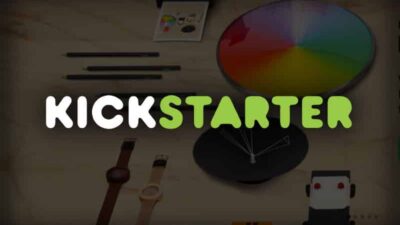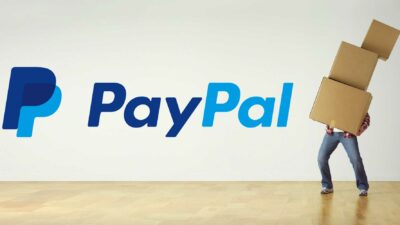You have an idea. It’s the bestest, newest thing since sliced Facebook. But you don’t have the tools, know-how or money. You might know how to build or produce the product, maybe know the business end of the product. But you are one person trying to do 10 jobs in fundraising. What do you do? Start a Kickstarter campaign!
Kickstarter is service that lets you raise money for your project, using a process called “Crowdfunding“. The model works like this – You start a campaign to raise money for a movie, band album, new piece of technology, or another invention. You register with Kickstarter, then put up your details for the world to find out more about your project. You set levels of funding, with possible rewards at different levels.
For instance, if you are a band looking to make an album, you might put a $10 donation level. In this donation, they would receive a copy of the album. Maybe a $50 donation could get a CD and t-shirt. $100 level could bring a production “Thank you” in the credits. So on and so forth.
TikTok is one of the most notable companies that were successful on Kickstarter. They had a watch enclosure that you would put your iPod Nano into. That, in turn, would turn the nano into a watch. Apple turned down the idea, but the creators then went to Kickstarter, where they got almost 1 million in 24 hours. You can buy their products on Amazon.com. And Blame Society Films – better known for the YouTube sensation “Chad Vader: Day Shift Manager” – raised $1900 for a show called Beer and Board Games. These are only a handful of people that have promoted and received funds for their endeavors. There are many more success stories.
But not all projects are accepted on Kickstarter. Keep in mind, you do have to go through an approval process before you can ask for money. If you are just looking to get a new computer, you will not be accepted. Your project cannot be a non-profit organization. If you are asking for funding for a web show, it should be for a season of that show – not the overall production.
Audiences respond to passion, sincerity, and an ability to execute. They want to see you communicate this in your video, and they want you to offer creative rewards that are fairly priced. – Kickstarter on “What’s the Secret”
I have personally ran a campaign on Kickstarter and it failed. I have had other friends do exactly what I did, and succeeded. It’s all about who wants to throw you a dollar or two, so be prepared to have your Kickstarter fail.
So here are some points you might want to consider when making your run for a Kickstarter project. Remember, you have 30 or 60 days to get the funding, or else your Kickstarter will not be funded. People want to know you are serious about this project before they fund. Here are 5 ways to run a successful Kickstarter campaign:
5. Take the time to fill out ALL information, update it as much as possible. Tell Your Story.
Let’s say your a band trying to get money to make an album. If your description says “We’re making an album! Fund Us!”, you will most likely get no funding. However, if you take the time to give a complete summary of the album idea, how the band will record it, what will be involved in recording, who you wish to have record the album for you, and other information like that, then people will see you are more serious about this project and more likely to back it.
If someone asks a question, answer it quickly. Post it in the FAQ, if appropriate. The more information on your website, the better.
Most important – When you are done typing up your project, FIND AN EDITOR.Maybe it’s your old English teacher. It could be a friend. You might even have to pay someone $50 to review. However you do it, make sure your grammar is correct. Potential sponsors could pass your proposal up, simply because your grammar is atrocious.
4. Plan to Promote your Project – More than just Facebook.
If I was a company looking for a VC (Venture Capitalist), I would put together a promoting plan. This would mean taking the time to travel to the VC, so you can pitch your idea to them. This is the same case with your Kickstarter.
You may have 5,000 Facebook followers, but keep in mind – they may not be watching you. I have done many promotions on social networks Facebook, Twitter, Google+ and more, and saturated with my project. I always get one person that messages me the day after and says “I wish I would have known”…
I go to a lot of events, such as CES, SXSW, BlogWorld & New Media Expo. I get my name out there as much as possible. So why wouldn’t I want to plan a Kickstarter around a trip like that? It makes the trip tax-deductible, and I get many opportunities to promote myself and my idea.
You don’t need to travel the world to do it. There are probably a lot of local events that will help you, too. Join a club, attend events and meet people.
3. Spend a Little to Make a Lot – Set a Kickstarter Budget
It sounds weird, but just like any other thing you do, you should set a budget to your project. If you are asking for $1000, then set a $100-200 budget to promote your idea. This is your advertising campaign.
If you are a band that is trying to get funding to make an album, create some flyers, then go out to shows and hand them out. Talk with the clubs before you do that – so it’s OK to pass out flyers. You might even get some gigs from the club if they know you are making an album.
Also, have a website set up so people can get more information. $10 for the domain, and you can use a service like Squarespace to get a website set up quickly for as little as $8 a month.
Speaking of which, the same thing goes with your backers. Give them something that will make the $10 donation worth it. If you put $1,000 donation level, make it something that no one else can get – even after the Kickstarter has ended.
2. Collect Names and Follow Up
You can sign up for a MailChimp account, then send out email on a weekly basis for your Kickstarter. You can also get their Twitter handles, then turn around and message your new friends to let them know of your project. Just don’t be spammy about it.
1. Be Your Kickstarter Project
I was watching Shark Tank a few weeks ago. A gentleman came in with an idea. The sharks didn’t fund him. Why? He basically said this was going to be a side project for him. He had a successful daytime job, and only could put 20% of his time into this project.
Just this last week, another person almost didn’t get funding because she said she had another job.
This doesn’t mean to quit your job just yet. Especially if you are a weekend band looking for $1000 to get an album together. However, it should mean that for the next 30 or 60 days, your main focus – Your 110% – goes toward that project.
If you put the time and effort into this process, you might just get a lot more than you expected. In some cases, you might get enough to quit the job and build your million dollar idea.
The better thing to do is create an email for each name you collect. I know that could be a lot of work, but in the end, it might be more personable and the recipient may give you a good donation.
If you have more than one person involved in the idea, then everyone should give 110% percent. A band of 4 can get more promotion done than one person.
This does mean you have to take the politician role, go out, shake hands and kiss babies. Once again, you never know who has money to give you.
It’s like the end scene from the Weird Al movie “UHF”. The homeless guy gives the group a rare 1955 double-die penny that is worth thousands, and enough to keep the fledgling station alive. From this we know – you never know where the money will come from. Don’t pass judgement because the person looks homeless. They might just drop you $10.
I hope you see a common theme here. It’s really all about promoting your project. Plan how your are going to promote, when you promote, and even go outside your box, and you might see a lot of success with your Kickstarter project. If you can get others to help you – friends, family, colleagues – you could possibly help take some of the pressure off you.
So I wish good luck to all of you who plan a Kickstarter project. May your dreams get funded.
Related Articles
- Kickstarting Education (wired.com)
- Exclusive: Kickstarter funding explodes, on pace to triple this year to around $300M (venturebeat.com)
- MethodShop Superfan: Culinary Bad Boy And Celebrity Chef Chris Nirschel [pic] (methodshop.com)
As a podcaster, videographer and blogger, Jeffrey works to convey the geek message. Inspired and passionate about tech and geek life. As a musician, Jeffrey loves to rock the house.






















 Yes, You Probably Have An iPhone Poop Problem!? – Infographic
Yes, You Probably Have An iPhone Poop Problem!? – Infographic
Leave a Reply
You must be logged in to post a comment.